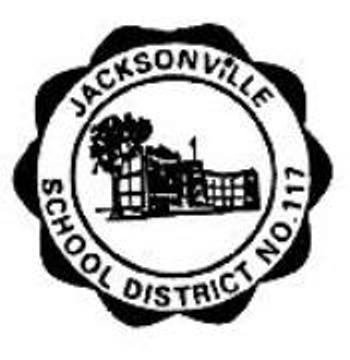Jacksonville School District 117 has to ask for the maximum amount for their upcoming tax levy in order to sustain area schools according to the administration. Last night, District 117 Treasurer Jaime Hadjan released the unofficial numbers for the tax levy and the overall value of property values that are taxable for this year. Superintendent Steve Ptacek explains that the ask for property tax revenue is governed by a law called Property Tax Extension Limitation Law or PTELL.
The law is designed to limit the increases in property tax extension (total taxes billed) for non-home rule taxing districts. Although the law is commonly referred to as “tax caps,” use of this phrase can be misleading. The PTELL does not “cap” either individual property tax bills or individual property assessments. Instead, the PTELL allows a taxing district to receive a limited inflationary increase in tax extensions on existing property plus an additional amount for new construction, newly annexed areas, and recovered TIF valuations. The limit slows the growth of revenues to taxing districts when property values and assessments are increasing faster than the rate of inflation. As a whole, property owners have some protection from tax bills that increase only because the market value of their property is rising rapidly.
The “limiting rate” is calculated, for each taxing district, by the county clerk to implement PTELL. The sum of a district’s rates extended for those funds subject to the PTELL cannot exceed this limiting rate. After calculating preliminary rates for the funds, the county clerk will compare the sum of these rates to the limiting rate. If this sum exceeds the limiting rate, the county clerk will reduce each rate proportionally, unless instructed by a taxing district to reduce them in a different way. In the case of Jacksonville School District 117, the limiting rate is the Consumer Price Index rate or CPI.
Ptacek explains how the district is able to get a higher ask each year above the CPI. “We take last year’s dollar amount and the EAV (Estimated Assessment Value), and we increase our ask of dollars by CPI or 5%, whichever is less. That gets our new ask and then you take the value of all the property in the district and they divide that out and that becomes the tax rate. Now, new property, they take that tax rate, they apply it to the new property, and that gets thrown into the pot. Every year you get higher than the CPI, but the reason you’re higher than CPI is because of new construction. When you have a place that’s booming with new subdivisions, that’s how you can capture that property tax from new construction.”
The district’s overall property value went down by a little less than .2%. However, the district was able to make up for that deficit in the nearly $1.4 million in new assessments for the year. Hadjan explains what the “ask” will be from the school district: “Our extension for this year, what we think we are going to get, not our ask but what we think we are going to get is $20,537,677.39 but we are going to balloon the levy up to 5%. You never know. There could be changes in values, so you balloon up to the 5%, and that will be our ask knowing that the county is going to come back and they are going give us our amount for the year. I’m going to ask for $21,088,942 which is the 5% knowing that the county is going to take it back down. We’re probably going to receive about $20,537,677.39.”
Hadjan says that she asks right up to the 5% rate because otherwise a Truth In Taxation hearing must be held with the public. The Truth in Taxation law requires a taxing district to compare the amount of its proposed aggregate property tax levy, to the amount of taxes extended for the district in the prior year. A notice must be published in a newspaper and a public hearing must be held, if the proposed aggregate tax levy is more than 5% greater then the previous year’s tax extension.
Ptacek says that PTELL is causing property tax problems all around the state because it removes a school board’s ability to negotiate the tax rate. He says if PTELL districts don’t take the maximum ask, they are condemning the future financial health of the schools it works for. “PTELL has absolutely removed board members’ discussions about giving tax breaks to their communities, and that’s why PTELL is the problem of the property tax issues in our state. On an $18 million levy with an average CPI of the last 25 years has been 2.28; if you could get $500,000 extra this year and you say ‘no’ and just keep it at $18 million, 25 years later your tax burden, the amount you can capture in property taxes is $1.6 million a year, and over that 25 year span you have lost $26 million in revenue that you can never get back. There is no way in a PTELL district that I am superintendent in that would recommend to a board to get anything other than the maximum CPI because you will pay for it in the long run. That’s why we have constantly increasing property taxes with all the PTELL districts in the state.”
Ptacek describes why the ask always go up for Jacksonville and other PTELL districts: “Since our EAV decreased, all of our property value went down. To get the same amount of money, your tax rate has to go up. If you are in a non-tax cap district which is based upon rate and not based around dollars, you can say that you can ask for the exact same rate but your amount of money will go up or down based on values. PTELL is based around how much money you ask and it increases by CPI every year, every year as values go down, your rates starts going through the roof. That’s how you get a place like Cahokia that has a school district tax rate of $13 dollars, ours was 4.8% last year. We are in the bottom half of the state, but we’re not Staunton that’s at 2.2%. Chicago Public Schools is only at 3.36% this year. They are one of the lowest tax rates in the state, and that’s why people are arguing about that they need to start taxing their people to pay their fair share and they’re not.”
Hadjan will finalize numbers with the County Property Assessments Office next month and come back with the final amounts for the tax levy and make it official in December. For now, citizens can review the tax levy numbers at the District’s Office. The final approval of the levy will come at the December board meeting.




